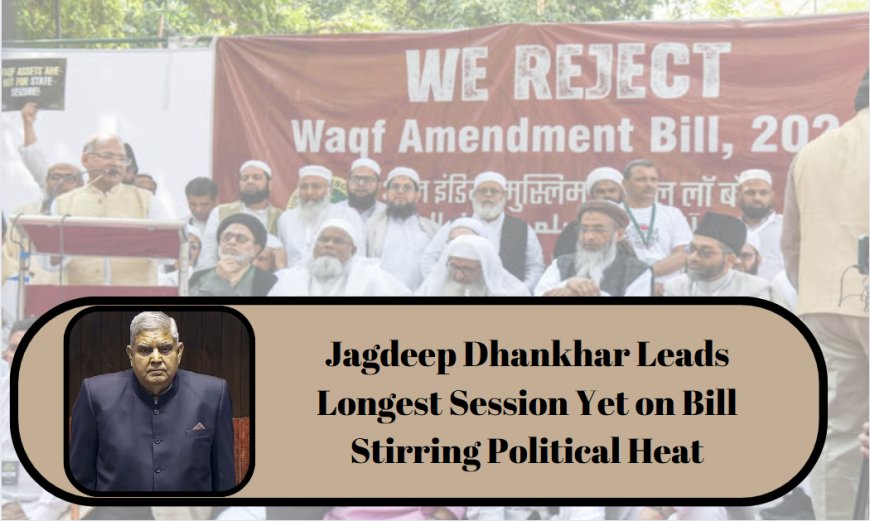Jagdeep Dhankhar Pulls Off Rare 17-Hour Rajya Sabha Sitting on Sensitive Faith Bill
A historic 17-hour session that sparked debate, unity, and sharp divides over sensitive reforms.

Mumbai (Maharashtra) [India] April 04: On 3rd April, something truly uncommon happened in India’s Upper House, the Rajya Sabha. The House started working at 11 in the morning and continued till 4 in the morning the next day. Yes, it was a full 17 hours of non-stop debate and discussion. Chairperson Jagdeep Dhankhar called it a “rare occasion” and rightly so.
The Waqf Bill: Centre of Heated Debate
The most talked-about topic of the day was the Waqf (Amendment) Bill, 2025. This bill brought many arguments between the ruling party and the opposition. While the government supported it as a step towards equality, the opposition raised concerns about the rights of minorities. The voting ended at 2:30 AM, showing just how intense the session was.
Jagdeep Dhankhar’s Historic Chairing
Jagdeep Dhankhar, who is also the Vice President of India, led the House throughout the session. His calm presence and respectful words helped keep the long discussion on track. He even announced that the House would meet again just seven hours later, at 11 AM on the same day.
What is the Waqf (Amendment) Bill?
The lesser known fact is that the Waqf Board manages religious properties for the welfare of the Muslim community. The new bill wants to include people from other communities too in the Board. This has made some leaders happy, while others have raised their eyebrows in doubt.
Minority Rights: A Hot Button Topic
Minority Affairs Minister Kiren Rijiju explained the bill in detail. He said the changes were made after listening to many groups and people. He added, “All government bodies should be secular.” This line became the highlight of the debate, as it touched on the core values of the Constitution.
Vote Count and Tensions
Eventually, 128 members voted in favour, while 95 were against the bill. This narrow win showed the deep divide in opinion. The opposition called the bill “unconstitutional,” but the ruling party claimed it would help in the better management of Waqf properties and bring transparency.
Parliament’s Sleepless Nights Continue
Interestingly, just a day before this, the Lok Sabha also had a 15.41-hour sitting on the same issue. This back-to-back dedication from both Houses shows how serious the government is about passing this bill, even if it means sacrificing sleep and comfort.
A Glimpse into History: Waqf Act of 1995
Another lesser known fact is that the current law being changed was made in 1995. The original act was made to protect religious properties. But with time, loopholes were seen, and many people misused these lands. That’s why the government believes new rules are necessary today.
What Happened After the Waqf Debate?
After the Waqf Bill was passed, another big topic was discussed — President’s Rule in Manipur. Home Minister Amit Shah presented a resolution about it. This topic, too, brought a lot of debate but was cleared quicker than the Waqf Bill. The Parliament kept working tirelessly till early morning.
India’s Parliamentary Spirit
Another fact is that this was one of the longest sittings in India’s parliamentary history since 1952, when the first session happened. It reminded people that even in today’s fast world, Indian democracy is ready to go slow and deep when needed.

 Aryan K
Aryan K 





